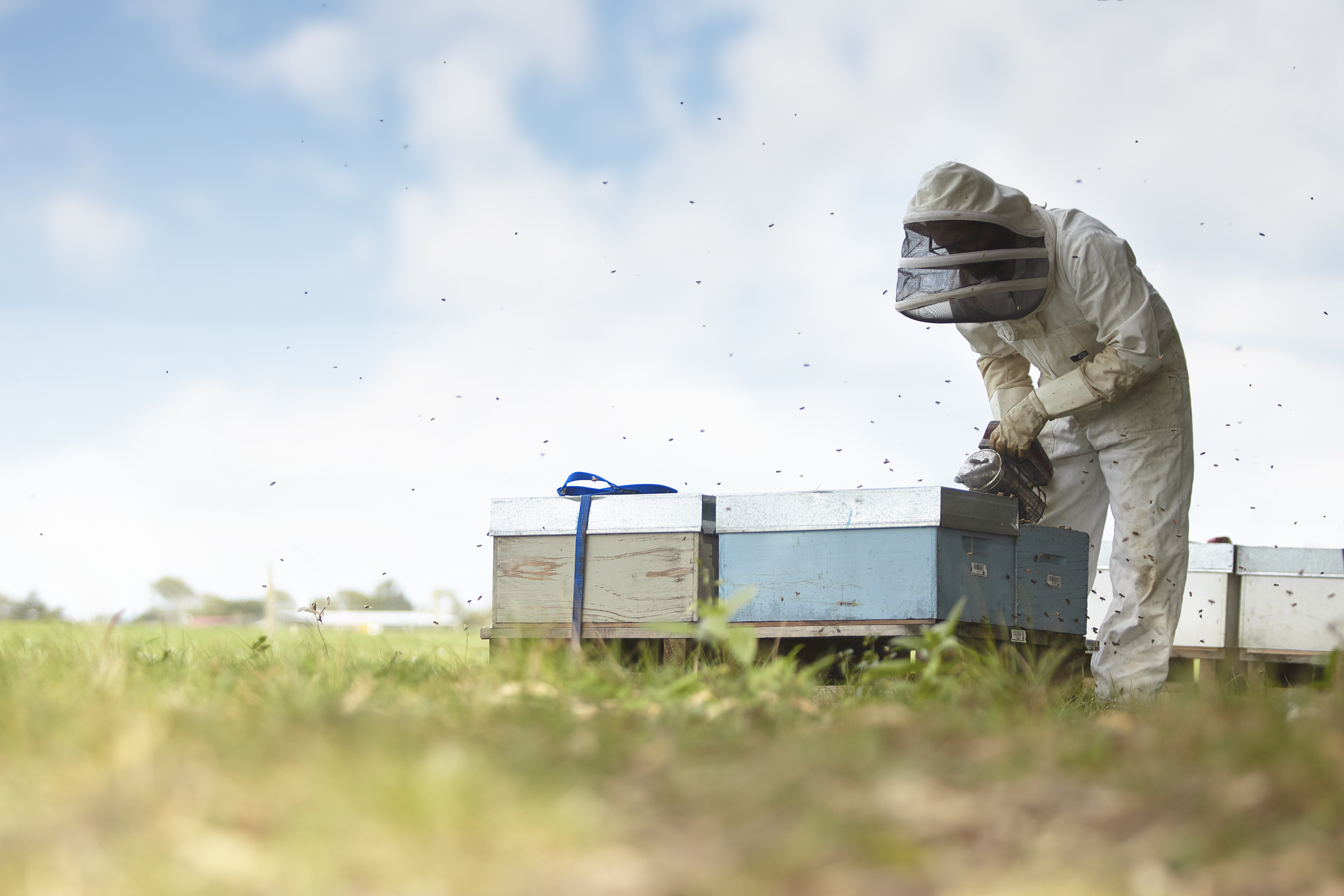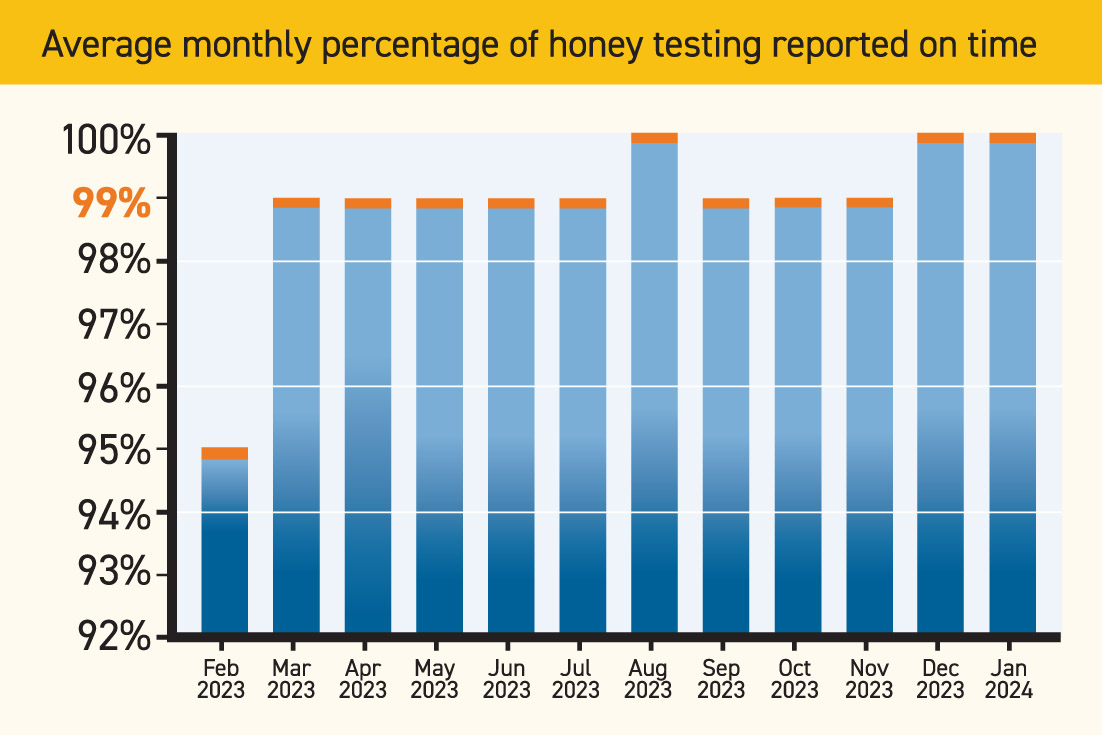
Ensuring consistent turnaround times is paramount as we prepare for the upcoming honey season. By maintaining efficiency and reliability in our operations, we not only meet the demands of our clients but also uphold our reputation for excellence in service delivery. Over the past 12 months, we have achieved a remarkable milestone, with 99% of our honey jobs reported within our industry-leading turnaround times, with 100% achieved in January. This achievement is particularly significant as the majority of our standard turnaround times are set for the next day, starting from when the sample arrives in our lab. This rapid next day turnaround includes tests for 3-in-1 Honey Suite, Manuka 5 Attributes, Glyphosate, Tutin, American Foulbrood (AFB) and Leptosperin.
As we enter the busy season, we stand by our strong commitment to maintaining these high standards. We understand the critical importance of timely results, especially during this period, and we are dedicated to providing the support you need, when you need it most.

Figure 1. Average monthly percentage of honey testing reported on time - Feb 2023 to Jan 2024
In addition to ensuring timely delivery of your results, our technology team has been working on enhancing the tests we offer. We're thrilled to announce that we have lowered the trace detection limit for Glyphosate to 0.002 mg/kg, a detection limit unmatched in the New Zealand market. This advancement strengthens our commitment to be industry leaders, and provides you with greater confidence in your results so you can make informed decisions.
You can choose to include this trace report at no extra cost. It's offered separately from the standard Glyphosate report, ensuring that your export processes remain unaffected while providing you with the essential information you require. Additionally, we offer the option of automatic notifications for these detections via email. If you're interested in this service, please reach out to fnb.csm@hill-labs.co.nz, and we'll gladly set it up for you.
Our honey team remains committed to pushing boundaries with our industry leading technical team dedicated to offering the best service available. With ongoing developments in progress, we are looking forward to sharing these advancements with you in the coming year. If you have any questions around how we can work together, please feel free to get in touch - fnb.csm@hill-labs.co.nz or call 0508 44 555 22.


